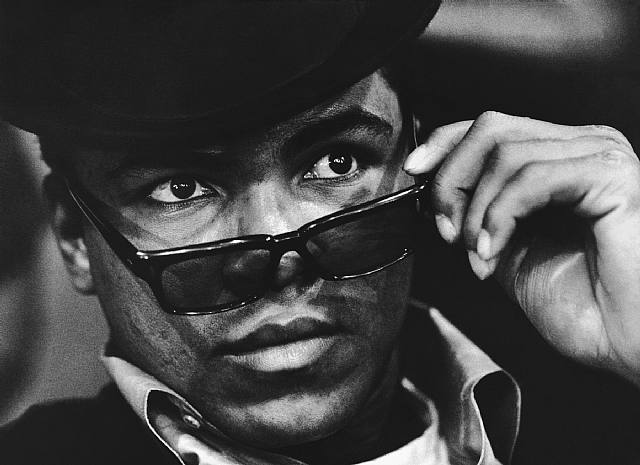Eddie Adams An Unlikely Weapon
 You’ve seen Eddie Adams’ photographs before. You’ve turned away from the one that made him famous; that of General Nguyen Ngoc Loan executing a Vietcong prisoner, an image that some people credit with creating a turning point in the Vietnam War. Woody Allen covered a wall with the photo as a way of satirizing the tendency of some artists to wallow in self-pity while the world burns; at least one musician used it as home décor to remind – he says – himself of the tortuous nature of how other people live.
You’ve seen Eddie Adams’ photographs before. You’ve turned away from the one that made him famous; that of General Nguyen Ngoc Loan executing a Vietcong prisoner, an image that some people credit with creating a turning point in the Vietnam War. Woody Allen covered a wall with the photo as a way of satirizing the tendency of some artists to wallow in self-pity while the world burns; at least one musician used it as home décor to remind – he says – himself of the tortuous nature of how other people live.
You’ve seen some of Adams’ later photos too – Clint in a longcoat, gun held behind his back in the ‘Unforgiven’ poster image, Ronald Reagan pumping iron, Bill and Hillary when they could look happy together and no one asked if they were faking it. I've used the Ali portrait above because I think Adams would prefer his most famous image to take a sabbatical.
And if you watch ‘An Unlikely Weapon’ you’ll see Eddie Adams; walking from his home to his studio, talking about the life of the mind, the power of photography, the bullshit detector that may have constituted his worldview. He doesn’t want you to know him or to want to know him because he once photographed a man being killed. He wants to capture the essence of a human being, and allow the possibility of compassion to arise in his audience. He doesn't want photography to harm anyone; even if he does want it to tell the truth about human frailty.
‘An Unlikely Weapon’ is the kind of documentary that knows how to reveal a story as it goes along, rather than having everything tied up neatly before it begins. The walk from home to studio is a nice structuring device, and director Susan Morgan Cooper has fashioned a compelling version of a life story, a man troubled by what he saw, and wedded to a particular idea of American masculinity.
But it’s also about the power of images to affect the world – today I can find a photograph in seconds of the street where the prisoner was killed, staring down from space, the crowded street, the pathos, the moral universe of this story mediated – and therefore ignorable - through the distance of satellites. You get the sense that Eddie Adams would not have enjoyed Google Earth.